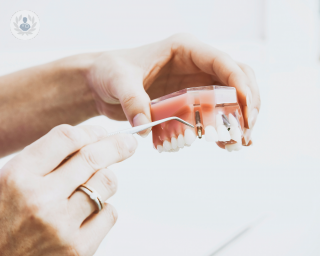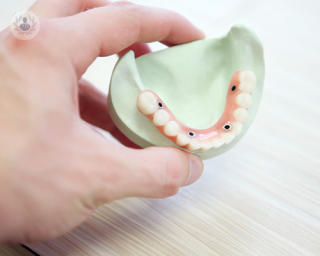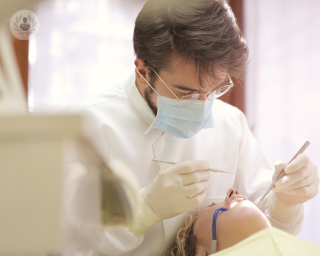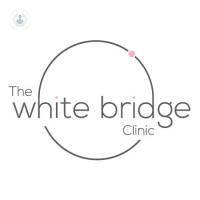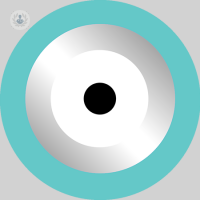Peri-implantitis
What is peri-implantitis?
Peri-implantitis is a dental implant infection, which can occur following dental implants if proper dental hygiene is not followed.
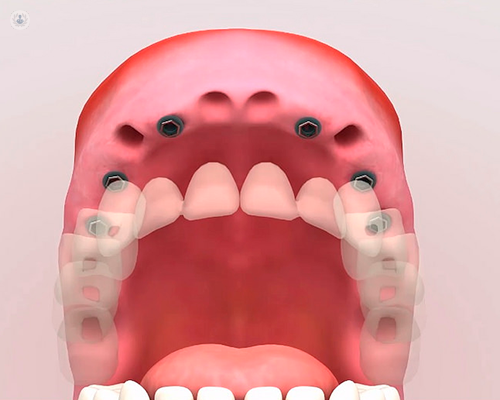
Symptoms of peri-implantitis:
An infected dental implant (peri-implantitis) may cause the following symptoms:
- bleeding or pus
- fever
- throbbing pain
- redness and swelling in the gums
- bad breath
- difficulty chewing your food
- the implant feeling loose
Medical tests to diagnose peri-implantitis
If you have the above symptoms, book an appointment with a dentist who will be able to confirm an infection upon inspection.
What are the causes of peri-implantitis?
A dental implant can become infected if food debris or bacteria gets lodged in the implant, which can lead to the formation of an infection.
Can peri-implantitis be prevented?
Preventative care is possible to avoid peri-implantitis, much of which can be done at home. It’s important to keep your dental implant clean. The best ways to keep them clean at home are to do the following:
- brush daily
- floss daily
- use mouthwash
It is also a good idea to have the implant cleaned professionally periodically. This cleaning will be thorough and include scaling of the tooth or implant’s surface. This should happen every 6 months when you make your 6 monthly visit to the dentist or hygienist.
To avoid infection directly after having an implant inserted, the following will help:
- Avoid disturbing the implant.
- Rinse 2-3 times day with salt water.
- Apply ice if there is discomfort or pain.
- When brushing, be very gentle on the implant.
Treatments for peri-implantitis
If an implant becomes infected very soon after it is inserted, treatment may include antibiotics or replacing the implant altogether.
For later infections to implants, antibiotics will be given, but if the infection is too severe, surgery will be required.
Which type of specialist treats peri-implantitis?
A dentist can treat peri-implantitis.

